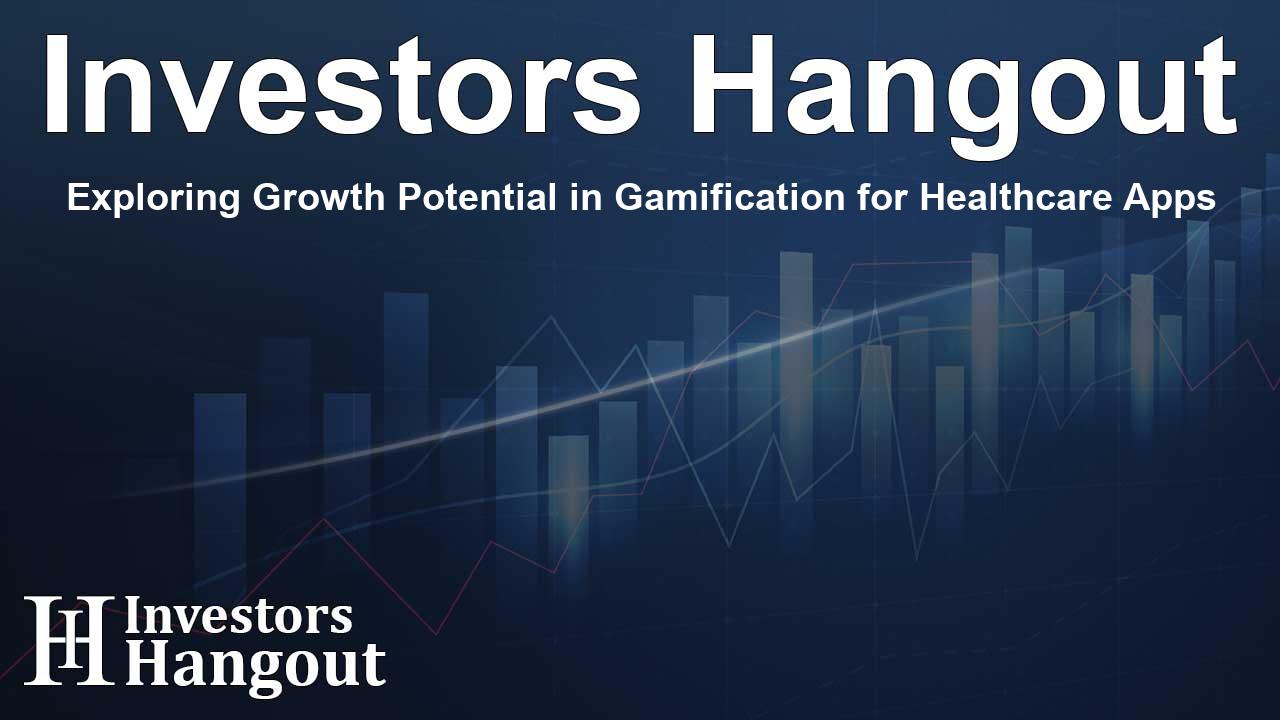Exploring Growth Potential in Gamification for Healthcare Apps

The Growing Impact of Gamification in Healthcare Apps
The market for gamification in healthcare mobile applications is on an impressive upward trajectory. Recent analyses suggest that it's expected to reach nearly US$ 31,168.1 million within the next decade. As the quest for innovative healthcare solutions intensifies, mobile apps that leverage game-like features are becoming more popular.
Key Drivers of Market Expansion
One major reason for this increasing demand is the rising number of chronic health conditions, like cardiovascular diseases, obesity, and diabetes. With over one-third of adults facing long-term health challenges, the need for effective healthcare solutions is more critical than ever. Estimates show that by 2030, global spending on chronic disease management could surpass US$ 47 trillion.
Thanks to the widespread use of smartphones and technological advancements, more people are turning to gamified apps as a method to manage their health. The incorporation of artificial intelligence and machine learning is enhancing user engagement and the overall effectiveness of these applications.
Major Innovators in the Market
Companies like Mango Health, Propeller Health, and Omada Health Inc. are leading the charge in this transformation. They are consistently pushing the boundaries with interactive mobile solutions aimed at improving patient outcomes. Additionally, new entrants are emerging, focusing on creating personalized experiences that utilize gamified features.
Types of Products and Market Classification
This market comprises various types of products, including casual games, serious games, and fitness-oriented applications, each targeting distinct audience segments. It’s projected that application types centered around exercise will experience a significant growth rate of 22.7% CAGR from 2024 to 2034, showcasing a shift towards more proactive health management.
Collaborative Efforts Fueling Growth
Notable partnerships between healthcare providers and tech companies are making waves. For example, the collaboration between UC Davis Health and Propeller Health is designed to provide specialized care for patients dealing with chronic obstructive pulmonary disease and asthma. These collaborations play a crucial role in shaping how treatment approaches evolve within the healthcare landscape.
Technology's Influence on Healthcare
The swift uptake of mobile internet and advancements like 5G technology are set to transform healthcare applications dramatically. Projections indicate that the number of mobile internet users will surge significantly, opening up exciting opportunities for healthcare providers and app developers alike. With billions of users online, the potential for gamified applications is looking very promising.
Looking Ahead: The Future of Gamification in Healthcare
In conclusion, the integration of gamification in healthcare applications represents a thrilling new avenue in the industry. With increasing interest from both consumers and healthcare professionals, the environment is poised for further innovation. As these technologies develop, they are likely to lead to better health outcomes and encourage more active participation from individuals in managing their health.
Frequently Asked Questions
What is gamification in healthcare?
Gamification in healthcare involves adding game-like elements to mobile applications to motivate users to take a more active role in managing their health.
Why is the gamification mobile application market expanding?
This growth is fueled by the rise in chronic diseases, easier access to smartphones, and tech advancements that make health management more engaging and effective.
Which companies are leading the way in this market?
Some of the top companies include Mango Health, Propeller Health, and Omada Health Inc., all committed to creating innovative health solutions through gamification.
How do collaborations enhance market expansion?
Collaborative projects between healthcare organizations and technology firms result in customized applications that improve patient outcomes and broaden access to mobile health tools.
What future trends are anticipated in healthcare gamification?
We can expect to see greater integration of AI technologies, an increase in mobile internet usage, and more personalized experiences in healthcare applications, all of which will boost patient engagement.
About The Author
Contact Logan Wright privately here. Or send an email with ATTN: Logan Wright as the subject to contact@investorshangout.com.
About Investors Hangout
Investors Hangout is a leading online stock forum for financial discussion and learning, offering a wide range of free tools and resources. It draws in traders of all levels, who exchange market knowledge, investigate trading tactics, and keep an eye on industry developments in real time. Featuring financial articles, stock message boards, quotes, charts, company profiles, and live news updates. Through cooperative learning and a wealth of informational resources, it helps users from novices creating their first portfolios to experts honing their techniques. Join Investors Hangout today: https://investorshangout.com/
The content of this article is based on factual, publicly available information and does not represent legal, financial, or investment advice. Investors Hangout does not offer financial advice, and the author is not a licensed financial advisor. Consult a qualified advisor before making any financial or investment decisions based on this article. This article should not be considered advice to purchase, sell, or hold any securities or other investments. If any of the material provided here is inaccurate, please contact us for corrections.
